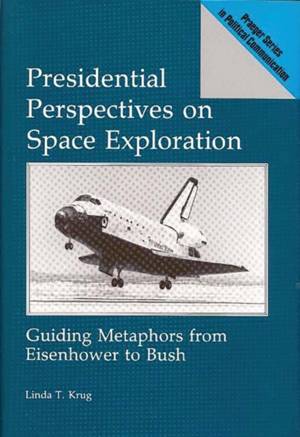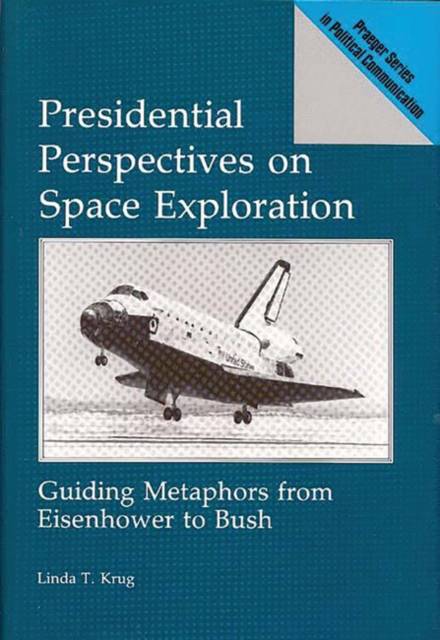
- Retrait gratuit dans votre magasin Club
- 7.000.000 titres dans notre catalogue
- Payer en toute sécurité
- Toujours un magasin près de chez vous
- Retrait gratuit dans votre magasin Club
- 7.000.0000 titres dans notre catalogue
- Payer en toute sécurité
- Toujours un magasin près de chez vous
Presidential Perspectives on Space Exploration
Guiding Metaphors from Eisenhower to Bush
Linda T Krug
127,45 €
+ 254 points
Description
John F. Kennedy challenged America to enter and win the space race, Nixon ushered in the era of the space shuttle work horse, and Reagan urged us to reach for the stars. In this study of space exploration from a metaphorical perspective, Linda T. Krug focuses on presidential rhetoric and the ways in which metaphors influence public understanding and opinion of the U.S. space program.
After the era of the man on the moon, why did people no longer flock to see a space launch? Why did legislative support for the space program become so difficult to procure? Why were NASA officials willing to compromise their ethics and beliefs to make a launch happen? Krug raises these questions and argues that the answers, to some extent, lie in the metaphorical shadows our presidents have cast over the space program. Beginning with a discussion of the significance of metaphor, this study offers a comprehensive space chronology highlighting space program events and presidential responses, from Eisenhower unveiling his plan to Bush taking us to tomorrow. Krug proposes that once U.S. astronauts walked on the moon, thus winning the race, the nation was unable to find another equally compelling way of looking at space exploration. She suggests that only when presidents learn to combine visions of space exploration with space use will a sound space program once again exist. With a focus on the dynamic motivating power of metaphorical images, this unique investigation of space exploration rhetoric will interest space enthusiasts, as well as those who study rhetorical criticism, political communication, political science, and space programs.Spécifications
Parties prenantes
- Auteur(s) :
- Editeur:
Contenu
- Nombre de pages :
- 160
- Langue:
- Anglais
- Collection :
Caractéristiques
- EAN:
- 9780275936129
- Date de parution :
- 30-10-91
- Format:
- Livre relié
- Format numérique:
- Genaaid
- Dimensions :
- 140 mm x 213 mm
- Poids :
- 358 g

Les avis
Nous publions uniquement les avis qui respectent les conditions requises. Consultez nos conditions pour les avis.






